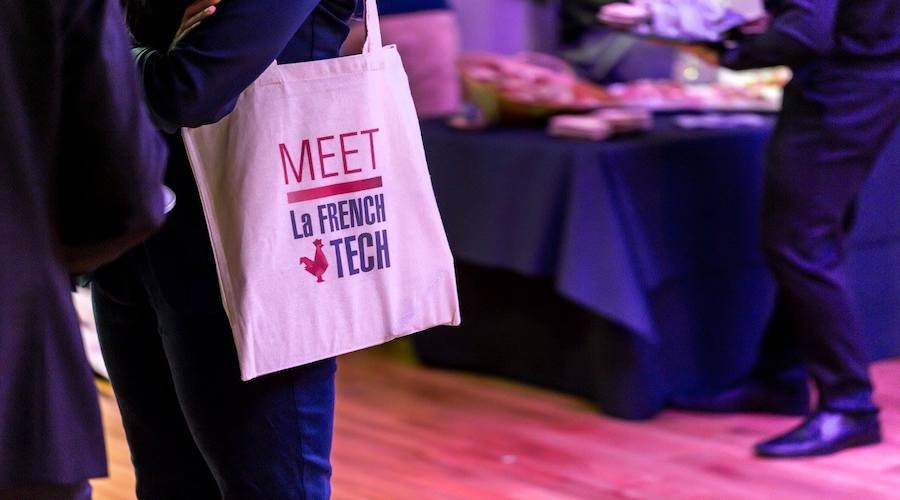French provides a ticket to Europe for North Africans

As French politicians play the immigration card ahead of the presidential election, the country’s new entrepreneurship visa opens a new route into the country for North Africans.
The first step following the launch of the French Tech Ticket program last year was to help people understand that settling in France for a year might be a good thing for their company - issues such as high French taxes on businesses are one off-putting factor.
“I think that the interest is not only to get close to the European market but mostly to be closed from capital and investors,” said Réda Berrehili, a Moroccan entrepreneur who was part of the first selection committee.
In late 2016, the second batch of 70 startups from around the world were selected, among which five from North Africa and two from Middle East. They started to arrive in France in January 2017 and were dispatched to 41 incubators, where they would spend the next 12 months. Besides receiving funding of 45,000 euros per team (US$48,000), each entrepreneur gets a one year residency permit.
A cocoon for entrepreneurs in need of scaling
“The best thing right now is that we are really followed, almost cocooned in every step of our launch, it is a fast track process,” said Tunisian entrepreneur Zied Jallouli, who created Bobbli, an app which enables people to buy the products seen in movies or on television.
He was having a hard time dealing with tax issues and developing his startup in Tunisia. He applied to the French program to test his app on his target market, and to gain some breathing room from Tunisia’s bureaucracy.
“It is always the same issue, at some point, when you want to scale on an international level, you need legal headquarters in the US to get more business angels to invest in you and trust the legal frame of the country. In Tunisia, we don’t have a good legal frame and we have so many restrictions that it is almost impossible to expand,” Jallouli said.
Where entrepreneurs in the Middle East look to the UAE and Saudi Arabia as the most favourable markets for scaling, for North African entrepreneurs it’s Europe. Jallouli chose to be incubated in Nice, rather than Paris, to be close to Cannes. He will use the famous film festival in May to gain more visibility for Bobbli.

Targeting a specific market
Egyptians Sameur Wagdy and Bishoy Mesdary left their beloved Cairo to join an incubator in Marseille.
They are managing, with their two cofounders who stayed in Egypt, the launch of Gbarena. It’s an online gaming community that connects gamers to global challenges and tournaments, and provides the tournament organizers with a platform to manage and organize competitions.
They did not choose France randomly.
“There is a big gamer community here, the PSG (Paris Saint-Germain is one of the main football teams) just recently signed a contract with the [French] e-sport federation to have also an e-sport platform,” Wagdy said.
“The European market is considered to be one of the biggest markets that pay in games. From the top 10 list of the highest paying countries in games five of them are European countries, France is considered to be the seventh in that list and the third among the European countries.”

A win-win situation for France
As for France, choosing to open to newcomers in a time of restrictions for migration policy was not made on a whim or not just as a political statement, it was all about business and a little about innovation.
When President François Hollande and Axelle Lemaire (the deputy minister in charge of innovation) launched the talent passport, which gives entrepreneurs a four year residency permit, and then the French Tech Ticket, they emphasized the need to show openness at a time when the mood was towards closing the borders.
France has the second largest venture capital ecosystem in Europe, worth 94 billion euros (US$101.6 billion) in 2013, and ranked first in Europe in 2016 for the number of investments made. The technology sector is one of the bright points in a gloomy economy.
Earlier in March representatives from Business France, an agency that aims to internationalize the French economy, arrived in Cogite, one of the most well-known coworking spaces in Tunis. The goal was not only to promote the third round of the French program but to encourage Tunisian entrepreneurs and companies to expand to France.
“You have to look beyond Paris, now we have very fast trains to Lille, Strasbourg, Bordeaux with cheaper rents, clusters and also an economical dynamism. France is still cheaper than London and you have a low cost of energy for datacenters for instance,” said Stéphane Lecoq, who is in charge of Business France’s North Africa office.
The more international startups move to France and the more investors they attract, the more France can shine as a Silicon Valley of Europe, thinks Berrehili.
“Especially with what is happening in the US right now with Trump, I think people will go to France and it could benefit the ecosystem specially with innovation, most of the unicorns in the US were made by immigrants from the second or third generation,” he said.
Besides the Business France campaign and the French Tech Ticket, the latter’s organizers are also working on a new, faster visa called the French Tech Visa which could enable entrepreneurs to bring their spouse to settle in France as well.
While France is moving away from an open-border approach to immigration, the French tech team seem to have move ahead with a migration policy of its own.
Feature image via French Tech Ticket.


